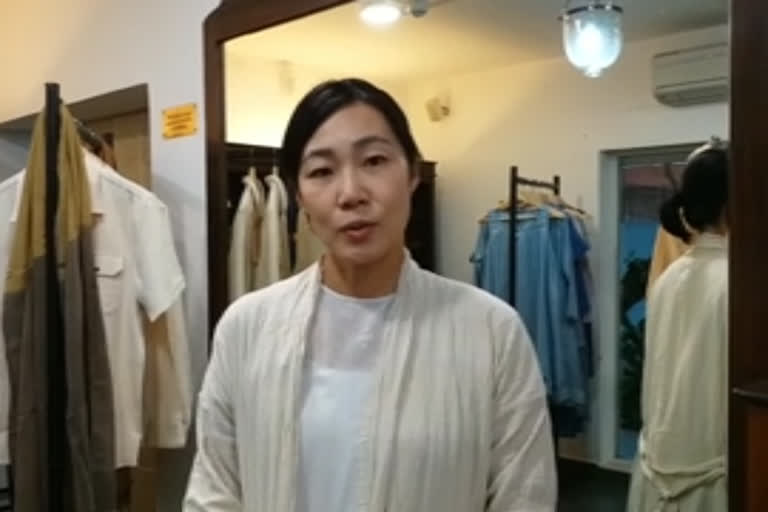Chennai:At this juncture when the Indian society has forgotten the essence of handloom, a middle-aged woman from Japan is trying her best to revive the struggling industry.
Japanese national Fumie Kobayashi, who is trying her hand at Karungani cotton of Tamil Nadu this time around, believes that usage of the country's various cotton varieties in designing clothes can revive the old Indian tradition.
Japanese woman's novel attempt to revive Indian handloom sector Being the second-largest employer in the country after the agriculture sector, India's handloom sector employs about 43 lakh people.
The history of Indian Handloom can be traced back to days of Indus valley civilisation. Even in ancient times, Indian fabrics were exported as far as Rome, Egypt, Japan and China.
Right from playing a key role during India's freedom struggle when Mahatma Gandhi urged the citizens of the country to boycott foreign clothes by adopting handwoven 'Khadi' to becoming the spirit of the nation, the Indian handloom industry has come a long way.
The handloom industry bloomed thereafter and is now among the world's largest industry with 90% of the world's handloom being sourced from India.
In an attempt to preserve India’s ancient and traditional skills of hand-spinning and weaving, Kobayashi is working in collaboration with a Tamil Nadu-based organic farming activist, Swaminathan, who has been involved in promoting indigenous cotton in India for several years.
The duo has been engaged in finding techniques to project their work in a marketable manner.
"I have been closely working with weavers in Kutch and West Bengal since 2012, where textile-related crafts form are still alive," said Kobayashi, who has named her organisation 'Calico', after the generic name of Indian fabrics that were extremely popular in Europe in the 17th and 18th centuries, and which even made their way to Japan.
"Soil can be conserved by cultivating cotton along with other food crops. Moreover, the livelihood of farmers has been improved a lot by doing the same. Farmers use only natural colours to dye cotton clothes and this is beneficial both to the environment and the people who wear them," said Swaminathan, who has been working with Tamil Nadu farmers, is now planning to extend the technique to Karnataka.
Kobayashi's Calico has tied up with 'Kaskom', which is owned by Swaminathan, to bring to Chennai the first of its kind fabric expo. Their work will be displayed at a fair organised in Mylapore's Sarangi till March 4 with an aim to create awareness and achieve their aforementioned goal.
The three-day fair will not only offer products for sale but also provide an overview of the many processes of the textile value chain.
Also read:TN Health Secretary confirms one positive case of coronavirus in Tamil Nadu
